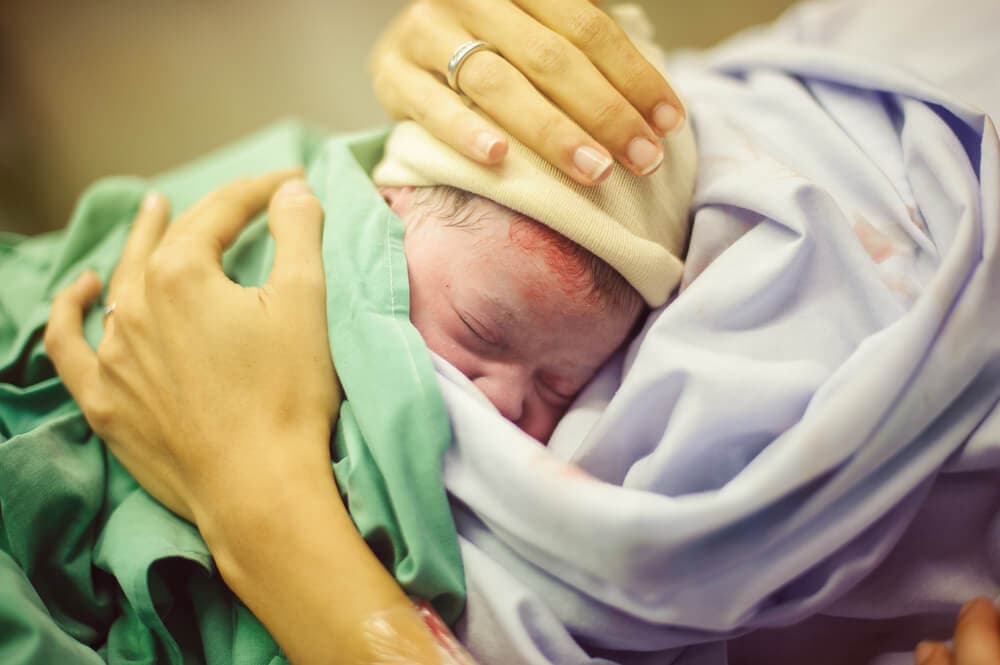A preterm birth is when your body is preparing for labor very early in pregnancy and you give birth less than three weeks before the expected due date. The opening of the cervix and regular contractions usually occur between 20-37 weeks.
Doctors usually do everything they can to prevent premature birth. If the baby grows inside you by the time it should be born, it is less likely to have problems after birth.
The exact cause of preterm birth is unknown, but certain risk factors make it more likely. However, preterm birth can occur even in women with no risk factors.
What Increases the Risks?

There are many factors that increase the risk of preterm birth and some of them are as follows:
- Smoking
- Being overweight or very underweight before birth
- Being in adolescence or over 40 years of age
- Not attending pregnancy check-ups
- Alcohol and drug use during pregnancy
- Having conditions such as high blood pressure, pre-eclampsia, diabetes, blood clotting disorders or infection
- Conceiving a child with certain birth defects
- Being pregnant with a multiple birth of twins or more children
- A family or personal history of premature birth
- Getting pregnant again very soon after having a baby
Signs of Premature Birth

To prevent preterm labor, you need to be aware of its warning signs. Acting quickly can make a big difference. If you have the following symptoms, contact your doctor immediately:
- Lower back and back pain: Usually there is pain in the lower back. It can be constant or intermittent, but it does not go away even if you change position or do something else for comfort.
- Contractions: Contractions that get faster and more intense, every 10 minutes or more often.
- Cramps Cramps and pains in the lower abdomen, similar to menstrual cramps. They can also feel like gas pains with diarrhea.
- Fluid coming from your vagina.
- Flu-like symptoms such as nausea, vomiting and diarrhea. Call your doctor even if they are mild. See your doctor if you cannot drink fluids for more than 8 hours.
- Increased pressure in the pelvis and vagina.
- Increased vaginal discharge.
- Symptoms of vaginal bleeding, such as light bleeding.
Some of these can be signs of normal pregnancy and are therefore very difficult to distinguish. However, it is still helpful to consult your doctor if you see a point of concern.
Complications
Preterm birth is likely to cause some health problems for the baby, such as low birth weight, breathing problems, underdeveloped organs and vision problems. Children born prematurely are more likely to develop cerebral palsy, learning disorders and behavioral problems.
Ways to Prevent

You may not be able to prevent preterm labor, but there are some basic things you can do to ensure a healthy, normal, on-time birth:
- Go for regular check-ups: With regular pregnancy check-ups, you and your baby’s health will be checked regularly. If there are any causes for concern, these can be checked. If you have a history of preterm birth or develop signs of preterm labor, you may need to see your doctor more often during pregnancy.
- Healthy diet: A healthy pregnancy is often linked to good nutrition. Some studies have also linked a diet rich in polyunsaturated fatty acids to a lower risk of preterm birth. These fats are found in nuts, seeds, fish and some oils.
- Avoid risky substances: If you smoke, quit. Your doctor can give you information about smoking cessation programs. Illegal drugs should also be avoided.
- Put time between pregnancies: Some studies show that having less than six months or more than 59 months between two pregnancies can increase the risk of preterm birth.
- Caution in the use of assisted reproductive techniques: If you plan to conceive with assisted reproductive technologies, consider how many embryos will be implanted. Multiple pregnancies carry a risk of premature birth.
- Control chronic conditions: Chronic conditions such as diabetes, high blood pressure and obesity can increase the risk of preterm birth. Talk to your doctor about controlling these conditions.
Can I Prevent Premature Birth?

One of the most important things you can do to have a healthy baby is to be very healthy even before conception and to go regularly for check-ups during pregnancy.
It may not be possible to avoid preterm birth, but the following steps can help:
- Try to reduce stress. Spend some alone and quiet time every day, ask for help when you need it.
- Researchers see a link between gum disease and premature birth, so brush your teeth daily.
- If you smoke, quit.
Your doctor will check your risk factors for preterm birth and tell you what precautions you should take. Measuring the length of the cervix with a transvaginal ultrasound can help estimate the risk of preterm birth. This is usually done between 20 and 28 weeks if necessary.
According to recent studies, treatment with the hormone progesterone can prevent preterm birth in some women. Vaginal progesterone was given to women with a short cervix. Women who have already experienced preterm birth and have had a baby can have a progesterone injection during pregnancy to reduce the risk.
What happens if my baby is born prematurely?

Approximately 1 in 10 babies are born prematurely. Most preterm babies grow normally and soon catch up with their peers.
However, the risk of problems is higher in these children. Premature babies grow a little slower than normal babies. They may take longer to turn on their backs, talk and hold things. They have a higher long-term risk of autism, mental retardation, cerebral palsy, lung problems, vision and hearing loss. Some may have problems such as emotional outbursts and hyperactivity. They may have problems with learning and reading at school.
The earlier the baby is born, the more likely it is to have problems. Babies born after 7 months usually need some time in the neonatal intensive care unit. Babies born earlier have more difficulties. These babies need special care.
When you come home from the hospital, watch out for some warning signs that may require you to call your doctor or go to the emergency room.
Breastfeeding Your baby may eat very slowly or may not get enough milk from the breast or formula. You need to feed him more often, every 3-4 hours. If your baby refuses to eat, call your doctor. If you see that your baby is having difficulty learning to suck, consult your nurse or lactation consultant.

Sleep Your baby may be sleepier than babies born normally. He may even sleep while sucking. Wake her up when it is time to eat. Then put him back to sleep.
Breath: If he/she has difficulty breathing, call the emergency room.
Body temperature Premature babies do not have enough fat to keep their bodies warm enough. Keep him away from cold places and keep the room warm. Dress him well in winter.
Jaundice: If your baby’s eyes and skin are yellow and he or she has problems eating, this could be a sign of jaundice. This means that the liver is not clearing enough bilirubin from the blood. Make sure jaundice is checked before you leave the hospital and call your doctor if you see any signs. If left untreated, it can cause brain damage.
Infections Premature babies do not have a fully developed immune system. This makes them vulnerable to infections. Look out for symptoms such as high fever and breathing problems.
Read also:
- 13 Foods You Can Eat While PregnantAre you pregnant? Are you hungry? Looking for a snack that will make your tummy and baby happy? You probably hear this a lot: Eating nutritious food is very important when you are pregnant. We are here to make your pantry a one-stop shop for healthy and delicious food that will give your baby the… Read more: 13 Foods You Can Eat While Pregnant
- What is good for heartburn during pregnancyDuring pregnancy you expect swollen ankles, morning sickness and breast engorgement, but what about heartburn? What causes it? As the name suggests, heartburn is characterized by a burning sensation that starts behind the breastbone and can rise up to the esophagus, which connects your throat to the stomach. Acids in the stomach can reach your… Read more: What is good for heartburn during pregnancy
- Signs of preterm laborA preterm birth is when your body is preparing for labor very early in pregnancy and you give birth less than three weeks before the expected due date. The opening of the cervix and regular contractions usually occur between 20-37 weeks. Doctors usually do everything they can to prevent premature birth. If the baby grows… Read more: Signs of preterm labor
- Miscarriage bleeding: causes and symptomsConception bleeding is bleeding that occurs 10-14 days after fertilization, when the fertilized egg attaches to the inner tissue of the uterus. The movement of the egg can cause mild bleeding and spotting and is completely normal and does not require any medical intervention. In general, one-third of pregnant women will experience a breakthrough bleeding.… Read more: Miscarriage bleeding: causes and symptoms
- Food poisoning during pregnancyFood poisoning is the infection of the body by bacteria, viruses, or other parasites, which can contaminate food and water. Learn how to prevent food poisoning, how to get rid of it, and how it may affect your pregnancy.
The articles on this site are for information purposes only. The site administrators are not responsible for attempting to apply any recipe, advice or diet, nor do they guarantee that the information provided will help or harm you personally. Be cautious and always consult a doctor or nutritionist!
*All products recommended are selected by our editorial team. Some of our articles include affiliate links. If you buy something through one of these links, you help us earn a small commission from the seller and thus support the writing of useful and quality articles.








